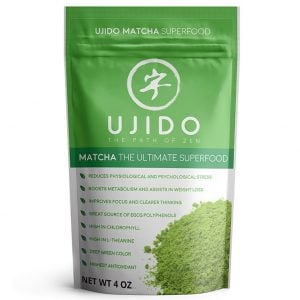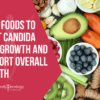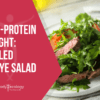Are You an Emotional Eater? How to Use Food to Boost Your Mood
A cup of coffee to brighten your morning, a glass of wine with dinner to unwind, a pint of Häagen-Dazs when you feel down. What do these have in common? They are all ways that we use food to change our mental or emotional state.
The Food-Mood Connection
Eating that donut may make you feel better for a moment or two, but over the long-term, it will exhaust your endocrine system and increase the risk of anxiety, insomnia, and depression. As a concentrated source of highly nutritious Japanese green tea, Ujido Matcha Green Tea promotes a relaxed state of alertness.
The modern palate is used to and expects extremely rich foods. This is called reward value:1
- Food, like drugs, has a reward value.
- This means that different foods work upon certain areas of the brain or with certain brain chemical messengers, called neurotransmitters.
- Food can be used as a way to “self-medicate.”
- Over time, we get accustomed to certain foods providing certain results.
When eating most modern processed foods, you may achieve a momentary good feeling, such as satiety or calmness, but this is at the cost of the bigger picture. Such as:
- Causing a blood sugar spike.
- Putting stress on the endocrine system.
- Feeding a low-grade infection in the body.
Doesn’t seem like a big deal? Think about the fact that we eat several times a day, hundreds of times a month. This kind of stress quickly adds up. Wacky blood sugar and an exhausted endocrine system are two factors that are strongly related to many of our modern diseases.
In a world where chronic disease is on the rise and processed foods have become the rule rather than the exception, the saying “you are what you eat” has never rung truer. As of 2015, the Federation of American Societies for Experimental Biology confirmed that highly processed foods dominated our grocery purchases in the U.S. — coming in at more than 60 percent of the calories in the food we buy.2 In 2016, researchers took it a step further when they stated, in a study published in BMJ Open, that these “ultra-processed” foods account for more than half of all our calories consumed in the U.S. and contribute to almost 90 percent of our added sugar intake.3
These same junk foods, such as fast food, have been linked to an increased risk of depression, while a diet rich in fruits and vegetables can have the opposite effect — protecting the brain to reduce depression risk.4,5
How a Processed Food Diet Affects Your Brain
GABA (gamma-aminobutyric acid) is the chief neurotransmitter of the nervous system that has an inhibitory effect. This means that it turns your nervous system down, rather than amps it up.
People with low levels of GABA or a GABA imbalance may feel:
- Anxiety or panic for no reason
- A sense of dread
- “Knots” in the solar plexus region
- Guilt regarding choices
- Overwhelmed for no reason
- Inner tension
- Disorganized
- Worry
What causes an imbalance in GABA? There are a number of factors affecting GABA:
- How it is made.
- How the body breaks it down.
- The availability of GABA receptors to receive the neurotransmitter.
While a GABA imbalance may look the same for many people, the mechanism for each person is unique. If you are working with GABA levels, consider blood sugar. We know, for example, that glucose helps the body make GABA. Therefore, blood sugar imbalances like hypoglycemia or insulin resistance (remember, processed foods are known to spike blood sugar) will limit GABA production.
A Healthy Gut Makes You Happier
Beneficial microflora found in the gut actually seem to increase GABA receptors in the brain.6 An increase of GABA receptors in the brain is a good thing, especially since a decrease has been associated with mood disorders, like chronic depression.7 Good bacteria actually help to bring the brain into a state of balance.8,9,10
Without proper microflora in the gut, pathogenic infection will begin to dominate.
Even a silent systemic infection can show up decades later in the form of serious neurodegeneration, like Alzheimer’s disease.11 Other modern diseases are those like type 2 diabetes, heart disease, dementia, autoimmune disorders, and childhood developmental disorders.
Two psychologists from the Leiden Institute of Brain and Cognition published intriguing findings on probiotics and mood in 2015. Psychologists Lorenza Colzato and Laura Steenbergen discovered that when healthy subjects were given living probiotics to improve digestion and immunity for four weeks, patients began to focus less on bad feelings and negative past experiences. The psychologists believed that probiotics could be used to reduce rumination, potentially managing negative thoughts associated with sadness.12
Fermented Foods to Boost Your Mood
We now know that food can contribute to a balanced state of mind.
We suggest starting with fermented foods and liquids, rather than taking a probiotic supplement:
- If you choose to ferment vegetables, such as cabbage or daikon, use the Veggie Culture Starter to introduce healthy bacteria to your vegetables.
- The Kefir Starter can be used to ferment both coconut water and raw, grass-fed diary.
- Body Ecology offers fermented beverages like InnergyBiotic to make getting your daily dose of beneficial microflora easy.
- Though it is not fermented, Ujido Matcha Green Tea can help to set the tone for a bright and balanced day ahead, providing a prime source of the calming amino acid L-theanine known to increase feel-good brain chemicals.
- The all-encompassing Body Ecology Core Program contains probiotics and gut-friendly supplements to lay the foundation for good gut health.
Perhaps we can revise that familiar expression to say, “You feel what you eat.” The foods you eat each day, and especially the probiotic-rich foods you consume to support your inner ecology, have a direct impact on both your mental and physical health. Improving your mood may be as simple as nourishing your gut.
What To Remember Most About This Article:
Food is often used as a reward or to self-medicate. When we eat modern, processed foods, we are momentarily rewarded with a feeling of calmness or satiety. However, these same foods can cause a spike in blood sugar to put stress on the endocrine system. These two factors contribute to a number of modern diseases.
Supporting your gut with beneficial bacteria can increase GABA neurotransmitters in the brain to balance your mood and even reduce chronic depression. Even better, good gut bacteria will protect your health over the long-term to reduce the risk of heart disease, dementia, and type 2 diabetes.
Enjoying daily probiotics, like fermented vegetables, coconut water kefir, or a probiotic drink, can inoculate the gut with the friendly bacteria it needs to heal. The Body Ecology Core Program also offers a complete kit to get gut ecology back on track. And don’t forget, a naturally calming drink like Ujido Matcha Green Tea can help to stabilize mood each day — by providing a rich source of the “relaxation” amino acid L-theanine that can increase feel-good brain chemicals.
- [product id=”1″]
- [product id=”3″]
- [product id=”169″]
- [product id=”164″]
- [product id=”210″]
REFERENCES:
- Guyenet, Stephen. Food Reward: A Dominant Factor in Obesity, Part I. Whole Health Source. April 28 2011.
- Federation of American Societies for Experimental Biology (FASEB). “Highly processed foods dominate U. S. grocery purchases.” ScienceDaily.
- Eurídice Martínez Steele, Larissa Galastri Baraldi, Maria Laura da Costa Louzada, Jean-Claude Moubarac, Dariush Mozaffarian, Carlos Augusto Monteiro. Ultra-processed foods and added sugars in the US diet: evidence from a nationally representative cross-sectional study. BMJ Open, 2016; 6 (3): e009892 DOI: 10.1136/bmjopen-2015-009892.
- Almudena Sánchez-Villegas, Estefania Toledo, Jokin de Irala, Miguel Ruiz-Canela, Jorge Pla-Vidal, Miguel A Martínez-González. Fast-food and commercial baked goods consumption and the risk of depression. Public Health Nutrition, 2011; 15 (03): 424 DOI: 10.1017/S1368980011001856.
- Almudena Sánchez-Villegas, Patricia Henríquez-Sánchez, Miguel Ruiz-Canela, Francisca Lahortiga, Patricio Molero, Estefanía Toledo, Miguel A. Martínez-González. A longitudinal analysis of diet quality scores and the risk of incident depression in the SUN Project. BMC Medicine, 2015; 13 (1) DOI: 10.1186/s12916-015-0428-y.
- Javier A. Bravo, et al. Ingestion of Lactobacillus strain regulates emotional behavior and central GABA receptor expression in a mouse via the vagus nerve. PNAS 2011: 1102999108v1-201102999.
- Cryan JF, Kaupmann K (2005) Don’t worry ‘B’ happy!: A role for GABA(B) receptors in anxiety and depression. Trends Pharmacol Sci 26:36e43.
- Sartor, R. Balfour. Probiotic therapy of intestinal inflammation and infections. Current Opinion in Gastroenterology: Gastrointestinal Infections. Vol 21: 1, 44-50. Jan, 2005.
- A randomized, double-blind, placebo-controlled pilot study of a probiotic in emotional symptoms of chronic fatigue syndrome. Gut Pathogens. Vol 1, Num 1, 6. 19 Mar 2009. DOI: 10.1186/1757-4749-1-6
- Chronic Gastrointestinal Inflammation Induces Anxiety-Like Behavior and Alters Central Nervous System Biochemistry in Mice. Gastroenterology. Vol 139: 6, 2102-2112.e1, Dec 2010.
- Letenneur L, et al. PLoS One. 2008; 3(11):e3637.
- Laura Steenbergen, Roberta Sellaro, Saskia van Hemert, Jos A. Bosch, Lorenza S. Colzato. A randomized controlled trial to test the effect of multispecies probiotics on cognitive reactivity to sad mood. Brain, Behavior, and Immunity, 2015; DOI: 10.1016/j.bbi.2015.04.003.









